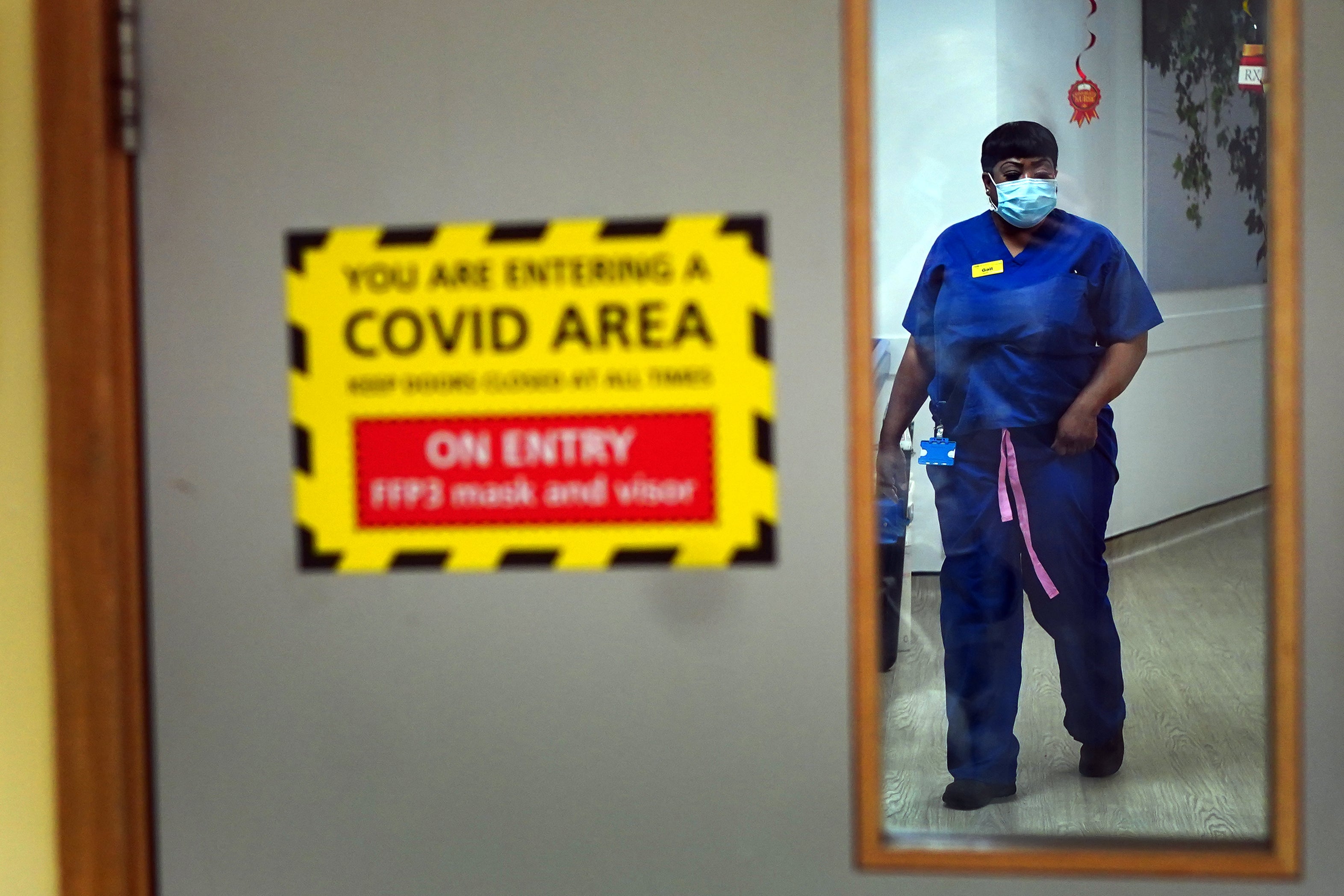Arthritis drug reduces deaths among hospital patients with Covid – study
The benefit was on top of that provided by dexamethasone and tocilizumab, researchers found.

A drug usually used to treat rheumatoid arthritis reduces the risk of people in hospital with severe Covid-19 dying.
The benefit was on top of that provided by dexamethasone and tocilizumab, two other anti-inflammatory treatments previously shown to reduce the risk of death in these patients.
The University of Oxford-led Recovery trial has been trialling a range of potential coronavirus treatments for patients admitted to hospital for Covid-19 since March 2020.
Today’s results not only show that treatment with baricitinib improves the chances of survival for patients with severe Covid-19, but that this benefit is additional to that from other treatments that dampen down the over-active immune response, such as dexamethasone and tocilizumab
Between February and December last year, 4,008 patients who only received normal care were compared with 4,148 patients who were randomly allocated to receive usual care plus an anti-inflammatory called baricitinib.
Researchers found the treatment significantly reduced death – 513 (12%) of the patients in the baricitinib group died within 28 days, compared with 546 (14%) patients in the usual care group, a reduction of 13%.
Mark Rivvers, 51, deputy head porter at Fitzwilliam College, University of Cambridge, took part in the baricitinib study when he was admitted to Addenbrooke’s Hospital with severe Covid last September.
He said: “I was in hospital for almost a month, mostly in an intensive care unit.
“Everything in my body seemed to be fighting against everything else – I was on almost constant respiratory support, I developed sepsis, and I had pneumonia all across my lungs.
“But I saw it as my duty to take part in the Recovery trial because I knew that no matter what happened to me, I was doing something positive to help others.
“I’m really pleased about the result with baricitinib, and hope that it can now be used to benefit many others.”
According to the study, which has not been peer-reviewed, the benefit of baricitinib was consistent regardless of which other Covid-19 treatments the patients were also receiving, including corticosteroids, tocilizumab or remdesivir.
Among patients who were not ventilated when entered into the trial, baricitinib reduced the chance of progressing to invasive mechanical ventilation or death from 17% to 16%.
Sir Martin Landray, professor of medicine and epidemiology at Oxford Population Health, and joint chief investigator for Recovery, said: “It is now well-established that in people admitted to hospital because of severe Covid-19, an over-active immune response is a key driver of lung damage.
“Today’s results not only show that treatment with baricitinib improves the chances of survival for patients with severe Covid-19, but that this benefit is additional to that from other treatments that dampen down the over-active immune response, such as dexamethasone and tocilizumab.
“This opens up the possibility of using combinations of anti-inflammatory drugs to further drive down the risk of death for some of the sickest patients.”
The dose of baricitinib was a 4mg tablet once daily for 10 days, or until the patient was discharged from hospital if this was sooner.
The large majority of the patients (95%) were receiving a corticosteroid such as dexamethasone, 23% were receiving tocilizumab, and 20% were receiving the anti-viral drug remdesivir.
More than two-thirds (68%) of patients were receiving oxygen and more than one quarter (27%) were receiving additional respiratory support.